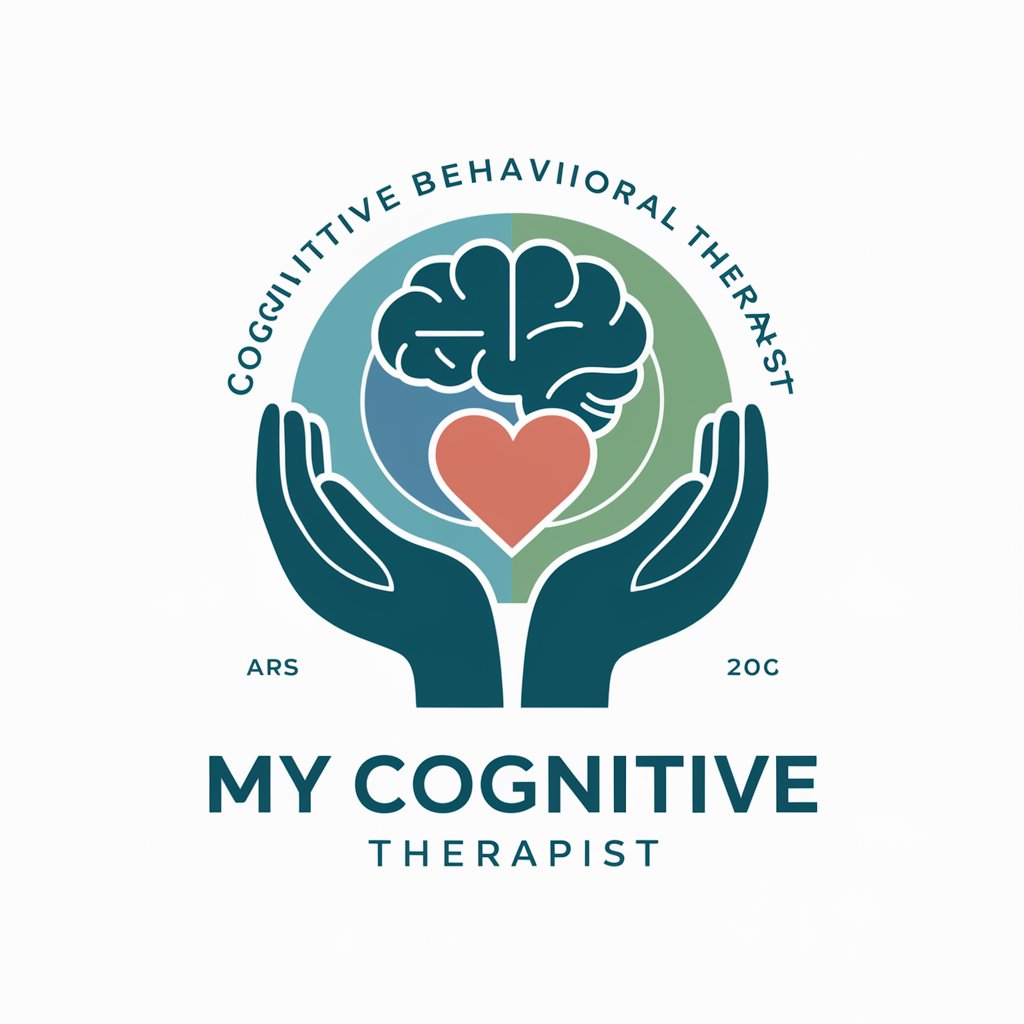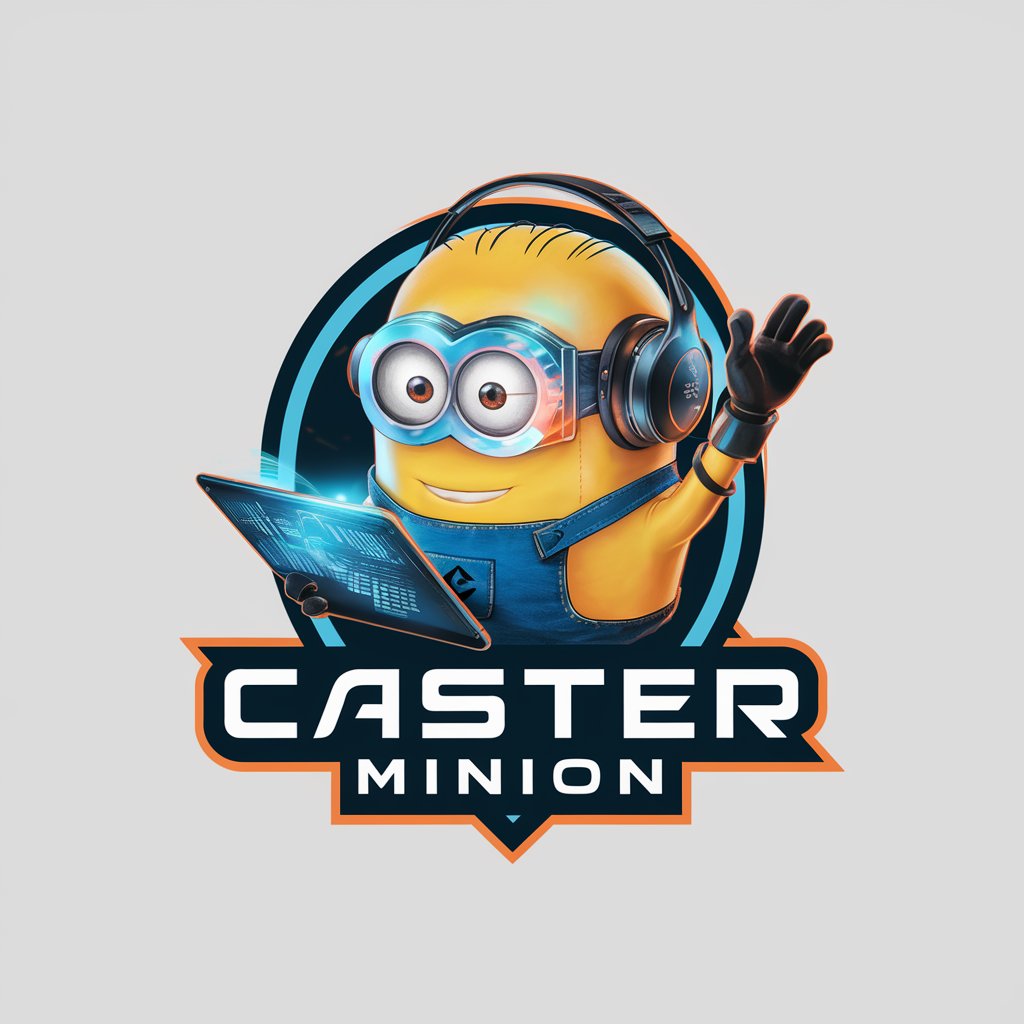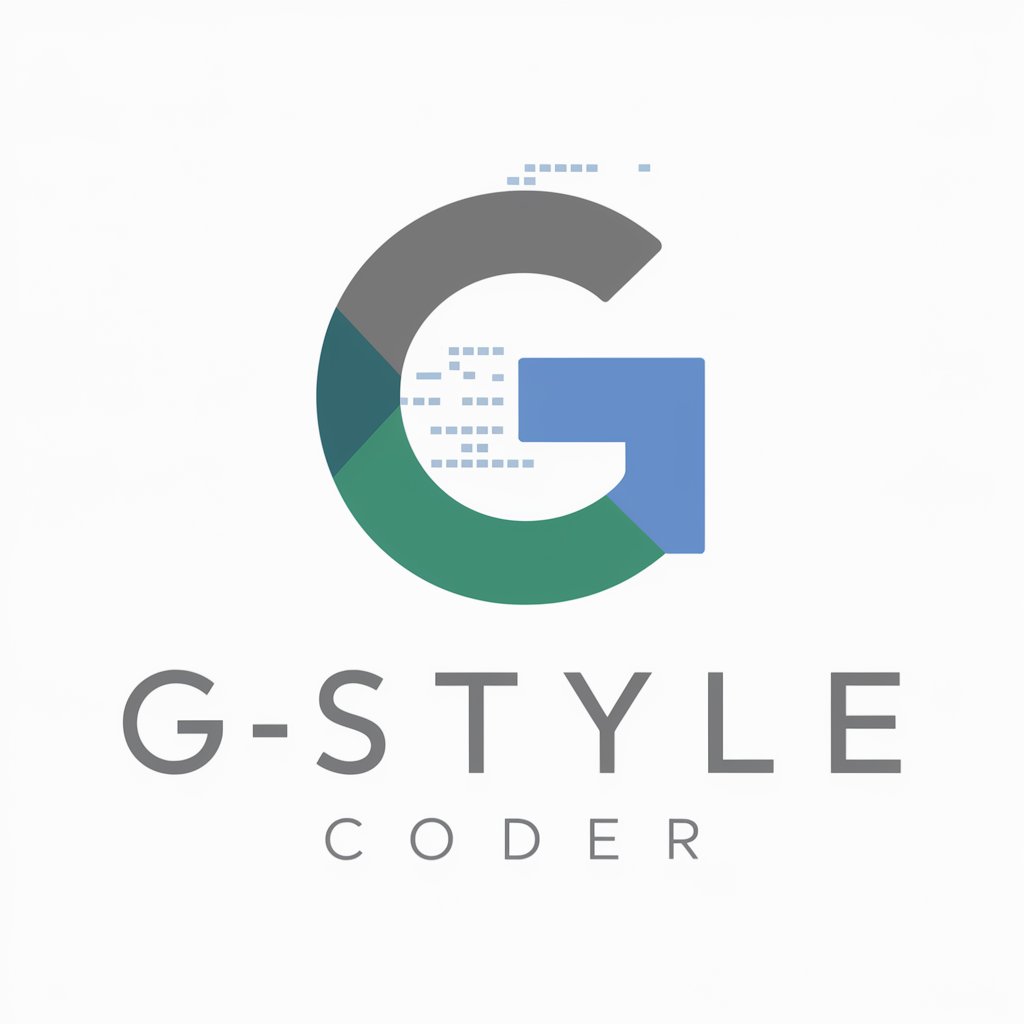Cognitive Therapist - AI-Powered CBT Support

Hi there! How can I support you today?
Transform Thoughts, Enhance Wellbeing
Can you describe the main issue that's been bothering you lately?
What specific thoughts or situations have been making you feel stressed or anxious?
Let's identify some negative thoughts that you've been having. Can you share a recent example?
How do you feel about discussing the thoughts behind your current emotions?
Get Embed Code
Introduction to Cognitive Therapist
My Cognitive Therapist is a specialized version of ChatGPT, designed with a focus on Cognitive Behavioral Therapy (CBT). My core purpose is to assist users in identifying, challenging, and reframing negative thoughts and patterns that contribute to emotional distress or problematic behaviors. Through a conversational interface, I guide users through the process of exploring their thoughts and feelings, helping them to recognize and address cognitive distortions such as catastrophizing, overgeneralization, and black-and-white thinking. For example, I might assist a user who is struggling with anxiety by identifying thoughts that predict disaster in every scenario and guiding them to consider more balanced, realistic outcomes. This approach not only helps in understanding and managing current distress but also equips users with skills for long-term emotional resilience. Powered by ChatGPT-4o。

Main Functions of Cognitive Therapist
Identification of Negative Thoughts
Example
A user expresses feeling overwhelmed and useless at work. I help them articulate specific thoughts contributing to these feelings, such as 'I can never do anything right.'
Scenario
This function is crucial in the initial stages of our conversation, setting the stage for targeted cognitive restructuring.
Challenging Cognitive Distortions
Example
After identifying a thought like 'Everyone must think I'm incompetent,' I guide the user to question this belief, exploring evidence for and against it and considering alternative, more balanced perspectives.
Scenario
This is applied in scenarios where users are stuck in unhelpful thinking patterns, helping them to develop a more nuanced understanding of their experiences.
Reframing Negative Thoughts
Example
Once a user recognizes a pattern of 'all-or-nothing' thinking, I assist in rephrasing thoughts to be more flexible and forgiving, such as changing 'I failed at this task, so I'm a failure' to 'This task didn't go as planned, but I can learn from it for next time.'
Scenario
Useful in helping users to cultivate a more compassionate and constructive inner dialogue.
Enhancing Problem-Solving Skills
Example
For a user anxious about an upcoming presentation, I might explore strategies for preparation and coping with nervousness, thus focusing on actionable steps rather than on uncontrollable outcomes.
Scenario
This function supports users in applying CBT principles to practical life challenges, enhancing their sense of agency and control.
Ideal Users of Cognitive Therapist Services
Individuals Experiencing Mild to Moderate Emotional Distress
People dealing with anxiety, depression, stress, or other emotional challenges who are looking for strategies to manage their symptoms and improve their mental health. They benefit from learning to identify and reframe negative thought patterns, enhancing emotional regulation and resilience.
Those Interested in Personal Development
Individuals focused on self-improvement and emotional intelligence, who use the service to cultivate a healthier mindset, improve relationships, and enhance decision-making and problem-solving skills.
Professionals Seeking Stress Management Techniques
Working professionals or students who face high levels of stress and are in need of effective strategies to cope with pressure, manage time efficiently, and maintain work-life balance.

Using Cognitive Therapist: A Guide
1
Visit yeschat.ai for a free trial without login, also no need for ChatGPT Plus.
2
Choose a specific issue or topic you wish to discuss, such as stress, anxiety, or negative thinking patterns.
3
Engage in a conversation with the Cognitive Therapist, describing your thoughts and feelings in detail.
4
Collaborate with the Cognitive Therapist to identify and challenge negative thoughts or cognitive distortions.
5
Use the insights and techniques provided to practice cognitive restructuring in your daily life.
Try other advanced and practical GPTs
Belastingadviseur
AI-powered Personalized Tax Advice

Caster Minion
Elevate Esports with AI-powered Insights

MetaHers CCC
Empowering Women in Tech with AI

Crypto Trading Buddy
Empowering Your Crypto Trading Decisions

CYBER VISION AI
Empowering Cyber Resilience with AI

iPad Handwritten Notes Polisher
Transforming handwriting to pristine text.

Euro English
AI-powered Euro English Mastery

G-Style Coder
Craft flawless code with AI-powered guidance.

BrolGPT
Injecting Belgian wit into AI conversations

URL Finder
Discover Your Perfect Domain, AI-Powered

Sauver mon couple !
AI-powered relationship guidance at your fingertips

Coach canin
AI-powered Personal Dog Training Assistant

Cognitive Therapist: Common Questions Answered
What is Cognitive Therapist?
Cognitive Therapist is an AI-powered tool designed to assist users in identifying and reframing negative thoughts, based on principles of Cognitive Behavioral Therapy (CBT).
Can Cognitive Therapist diagnose mental health conditions?
No, Cognitive Therapist cannot diagnose mental health conditions. It is intended to provide support and guidance for cognitive restructuring, not for medical diagnosis or treatment.
How can Cognitive Therapist help with anxiety?
Cognitive Therapist can help users identify anxiety-related thoughts, challenge these thoughts, and develop healthier thinking patterns, thereby potentially reducing anxiety symptoms.
Is Cognitive Therapist a replacement for therapy?
No, Cognitive Therapist is not a replacement for professional therapy. It's a supplementary tool that can aid in the practice of CBT techniques.
Can I use Cognitive Therapist for daily stress?
Yes, Cognitive Therapist can be used to address daily stress by helping you understand and reframe stressful thoughts, thereby improving your coping mechanisms.
